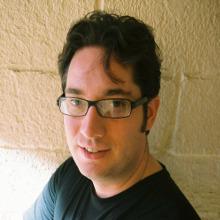The Eye of the Future
(Inside Science) -- Presbyopia is a condition that occurs with age. It’s related to the failure of the crystalline lens, the second lens in the eye, to accommodate, or reshape. This failure to reshape happens because the lens becomes stiffer with age. It no longer has the ability to see near and far, so it needs additional aid to look at things from a longer distance.
Susana Marcos, professor of research at the Institute of Optics (CSIC), says the long-term goal for correcting presbyopia is to replace the crystalline lens with another lens that can restore the function of reshaping. Scientists are now working on developing new lenses that can reshape themselves.
We have these optics systems that have dual adaptive optics elements, to actually produce or simulate smooth profiles of these lenses. One interesting correction that we can look at are multifocal corrections. These corrections come in the form of contact lenses or in the form of intraocular lenses. The lenses are given to people whose lenses have lost their ability to reshape.
More difficult corrections are based on what is called a simultaneous vision principle -- where two images are projected that are both focused and unfocused at the same time, so it’s an image of a blurred image and a sharp image.
Before these lenses are implanted or before they are manufactured, patients can have the experience of wearing these correction lenses. This is an optical mechanical lens that moves very rapidly, providing different focus points in a very large space so that researchers recreate the multifocal properties of these lenses.
The current version of it is a wearable device that is binocular, which simulates what happens in both eyes so a patient can experience the multifocal lens. It’s interesting for someone who is going to have a permanent intraocular lens implanted to actually experience how the image, and how the world, is going to be with this kind of correction.

